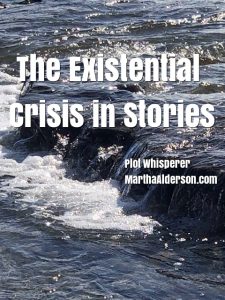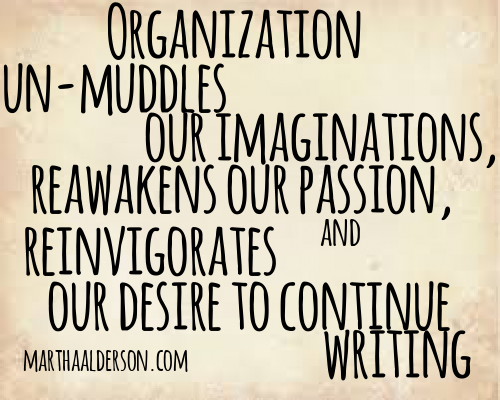The 3rd Energetic Marker — The Crisis / Dark Night — is more or less a fixed moment in the Universal Story. Whether this major turning point is an existential crisis depends on the emotional intensity you intend for the story you’re writing. Using the existential crisis in stories provides depth and meaning.

Existential
Existentialism posits that each individual is empowered to choose the parameters of his or her existence. Existential is an adjective and, for our purposes, describes crisis.
- Concerned with existence, especially human existence
- This philosophy definition lends itself to character-driven stories where character transformation reigns supreme
- Affirming or implying the existence of a thing
- This logic definition lends itself to more action-driven stories where dramatic action counts the most
A combination of the two works on all levels at once.
Crisis
An emotionally significant event or radical change of status in a person’s life.
Mini-crisises hit the protagonist throughout a story. The Crisis / Dark Night is the stage in a sequence of scenes toward the end of the Dark Middle where the trend of all future scenes, for better or for worse, is determined.
The Existential Crisis in Stories
From the halfway mark of the story, the 2nd Energetic Marker — Recommitment / Rededication, energy quickly builds to the Crisis / Dark Night. Here, around the 3/4 mark of the story, something emotionally devastating happens that throws the protagonist off course and forces her in a new direction.
Action-Driven Stories and the Existential Crisis
In predominately action-driven stories, the Crisis / Dark Night may or may not be an existential crisis. In other words, she may not be forced to examine the meaning of her entire existence. Your story decides.
Character-Driven Stories and the Existential Crisis
In character-driven stories, the protagonist demonstrates a fatal flaw throughout the story. At the Crisis / Dark Night, she causes, is instrumental in, creates her own downfall. Because of that, she is forced to question the meaning of her life. If, because of her own stubbornness, fear, poor logic, missed cues, foolhardiness, need for control, ignorance, or whatever else you burden her with, elicits what happens at the Crisis / Dark Night, she herself is the cause of the radical change in her status in life.
Whether an existential crisis alone or mixed with a dramatic action crisis, the Crisis / Dark Night signals a death — the death of an old personality, an assumed personality, the end of a belief system.
What we’re talking about is getting to know fear,
becoming familiar with fear,
looking it right in the eye
— not as a way to solve problems,
but as a complete undoing of old ways of seeing, hearing, smelling, tasting and thinking.
The truth is that when we really begin to do this,
we’re going to be continually humbled.
Pema Chodron
Search for Meaning
If you’ve ever suffered an existential crisis, you’re well-aware of how humbling and treacherous the search for meaning. Just as you also find the potential for a radical transformation. In real life, overcoming an existential crisis can take years. Howard, in Collateral Beauty (click to read a plot review of the film), suffers an existential crisis 2 years before the front story takes place. The crisis that hits at the 3rd Energetic Marker is more a dramatic Action crisis that, rather than cause him to question the meaning of his life, simply cracks his heart wide open.
Stories that take readers to an existential crisis through a character’s emotions promise that you, too, can change your life and transform.
More Help
For more help with this pivotal turning point in every great novel, read: Writing Blockbuster Plots: A Step-by-Step Guide to Mastering Plot, Structure, and Scene


 Collateral Beauty — A Plot Review
Collateral Beauty — A Plot Review
Follow Me!